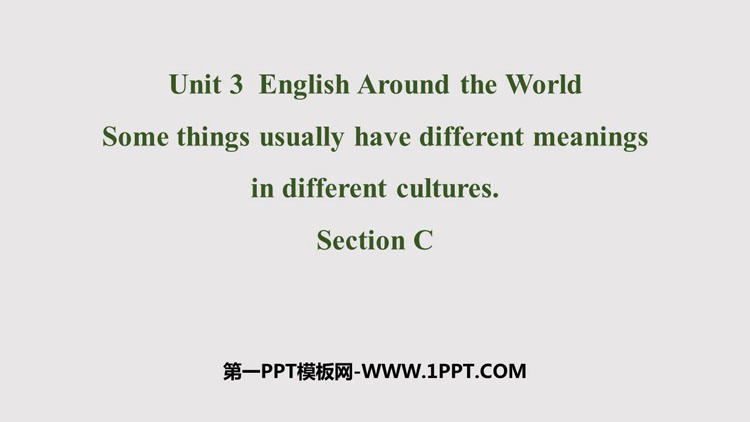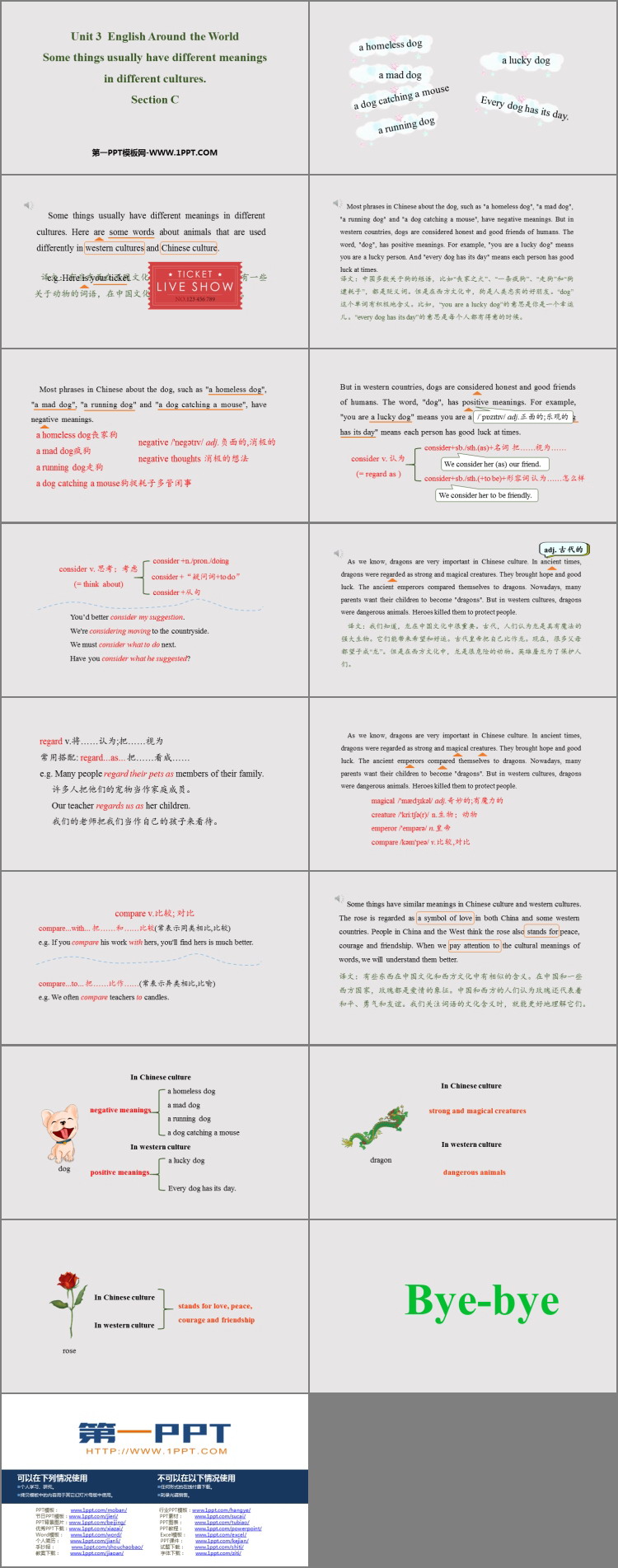仁爱版英语九年级上册《Some things usually have different meanings in different cultures》SectionC PPT课件
展开
仁爱版九年级英语上册《Some things usually have different meanings in different cultures》SectionC PPT课件,共17页。
Some things usually have different meanings in different cultures. Here are some words about animals that are used differently in western cultures and Chinese culture.
译文:有些东西在不同文化中有不同的含义。这里有一些关于动物的词语,在中国文化和西方文化中用法不同。
Most phrases in Chinese about the dog, such as "a homeless dog", "a mad dog", "a running dog" and "a dog catching a mouse", have negative meanings. But in western countries, dogs are considered honest and good friends of humans. The word, "dog", has positive meanings. For example, "you are a lucky dog" means you are a lucky person. And "every dog has its day" means each person has good luck at times.
译文:中国多数关于狗的短语,比如“丧家之犬”、“一条疯狗”、“走狗”和“狗逮耗子”,都是贬义词。但是在西方文化中,狗是人类忠实的好朋友。“dog”这个单词有积极地含义。比如,“you are a lucky dog”的意思是你是一个幸运儿。“every dog has its day”的意思是每个人都有得意的时候。
regard v.将……认为;把……视为
常用搭配: regard...as... 把……看成……
e.g. Many people regard their pets as members of their family.
许多人把他们的宠物当作家庭成员。
Our teacher regards us as her children.
我们的老师把我们当作自己的孩子来看待。
compare v.比较; 对比
compare...with... 把……和……比较(常表示同类相比,比较)
e.g. If you compare his work with hers, you'll find hers is much better.
compare...to... 把……比作……(常表示异类相比,比喻)
e.g. We often compare teachers to candles.
... ... ...
关键词:Some things usually have different meanings in different cultures PPT课件免费下载,.PPT格式;


